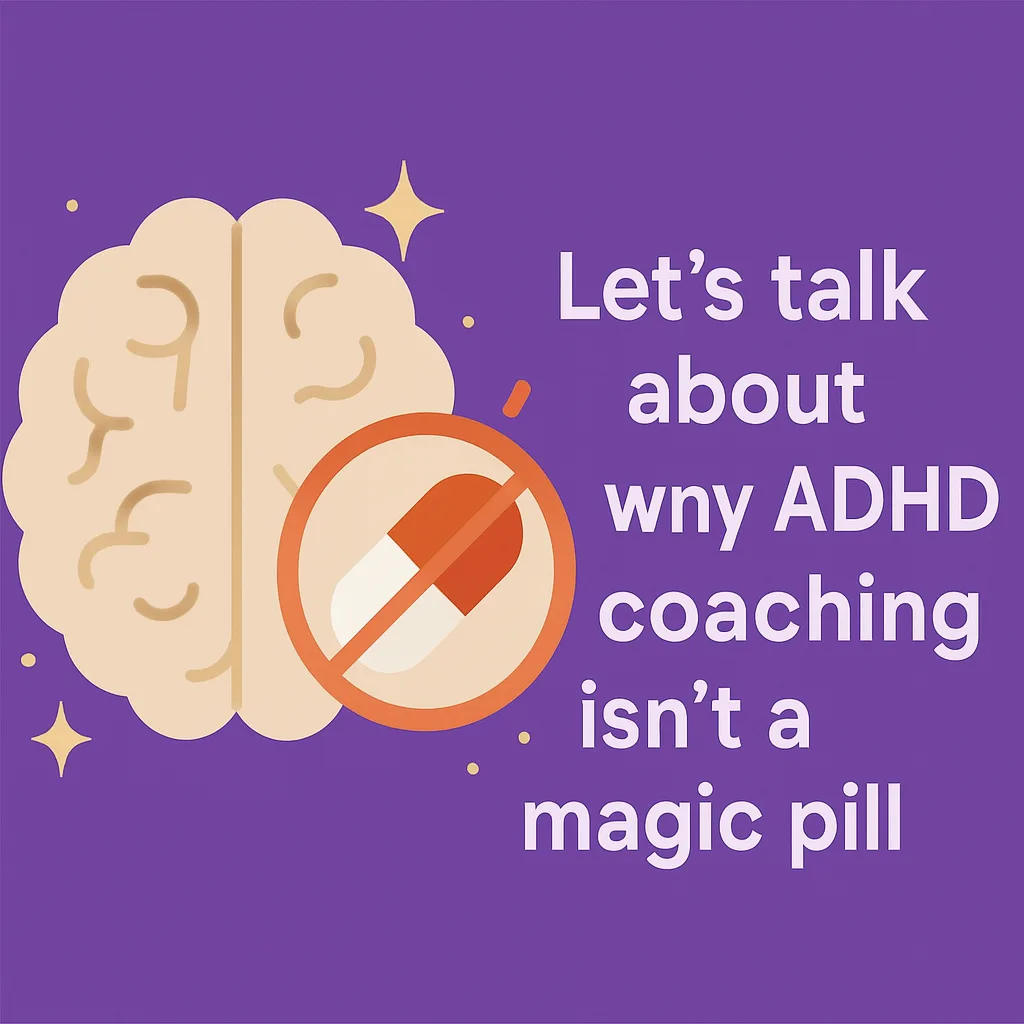Just like medication isn’t a one-and-done solution, coaching requires time, practice, and persistence. And yes—there’s brain science behind that.
For ADHDers, change doesn’t come from simply knowing what to do. It comes from repeating strategies enough times for the brain to actually believe they work.
🔁 Repetition is the rewiring.
ADHD brains often struggle with something called inconsistent recall—we might know a strategy on Monday, but by Friday it feels brand new again. That’s not laziness. It’s neurology.
To form new habits, ADHD brains need more frequent, meaningful reps to strengthen those neural pathways. That’s where coaching comes in:
🔄 Practicing small shifts consistently—not just trying big ones occasionally
🧪 Designing experiments to see what actually works
🗣️ Naming patterns out loud—to build self-awareness and self-regulation
📆 Creating accountability loops—because external structure leads to internal change
🧩 And let’s not forget time blindness. ADHDers often underestimate how long growth actually takes. Coaching becomes the rhythm, reflection, and reminder that progress is happening—even if it’s not overnight.
🌱 Growth isn’t about trying harder. It’s about trying longer, with guidance, grace, and curiosity.
Coaching works when:
- You show up—even imperfectly
- You stay curious—not judgmental
- You practice—especially when it’s awkward or slow
🚫 Coaching isn’t a quick fix.
✅ It’s a relationship. A structure. A lab where your brain learns to adapt, experiment, and flourish.
🛠️ It’s not about doing everything “right.” It’s about doing your version of right—with support and science.
📖 Want to see what this looks like in real life?
Check out our latest case study on how one client improved time management, self-advocacy, and productivity in just three months—through consistent coaching, experimentation, and effort.
You’re not behind. You’re building—one repetition at a time.


